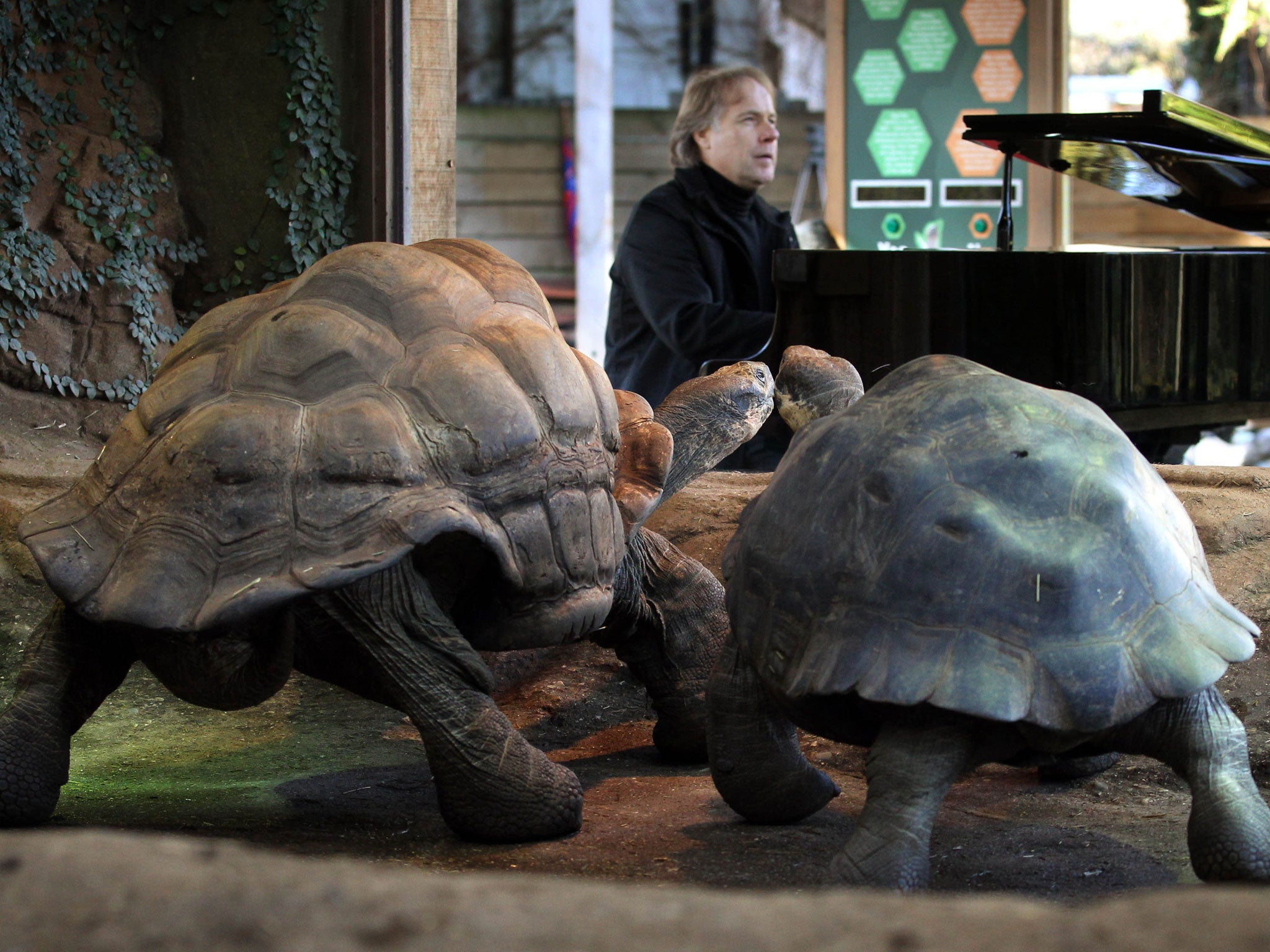'Prince of Romance' Richard Clayderman called in to encourage tortoises to mate for Valentine's Day

Your support helps us to tell the story
From reproductive rights to climate change to Big Tech, The Independent is on the ground when the story is developing. Whether it's investigating the financials of Elon Musk's pro-Trump PAC or producing our latest documentary, 'The A Word', which shines a light on the American women fighting for reproductive rights, we know how important it is to parse out the facts from the messaging.
At such a critical moment in US history, we need reporters on the ground. Your donation allows us to keep sending journalists to speak to both sides of the story.
The Independent is trusted by Americans across the entire political spectrum. And unlike many other quality news outlets, we choose not to lock Americans out of our reporting and analysis with paywalls. We believe quality journalism should be available to everyone, paid for by those who can afford it.
Your support makes all the difference.Richard Clayderman, who has been called the 'Prince of Romance', has likely had many odd requests during his successful career as a musician, but surely none as strange as this.
The French pianist was called into London Zoo a week ahead Valentine's Day - in order to encourage a stubborn male Galapagos tortoise to mate.
The tortoise in question, Dirk, is thought to be more than 70. He has his pick of mates - Dolly, Priscilla and Polly, who are 17, and 13-year-old Dolores - and zookeepers hope that Clayderman could help the endangered animals get in the mood.
A huge star in the 70s, thanks to his song Ballade Pour Adeline - one of the biggest-selling recordings of all time - Clayderman is optimistic that he might be able to help speed things up for the sedate reptiles.
He said: "Music is a powerful thing, and I would like to believe it has a positive effect on animals, as well as us. It certainly is an experience to play in such a well known and romantic place as London Zoo."
Scientists have previously suggested that music may have an effect on animal behaviour, and some farmers have claimed that classical music has helped to increase the yield of milk and eggs in their livestock.
Join our commenting forum
Join thought-provoking conversations, follow other Independent readers and see their replies
Comments